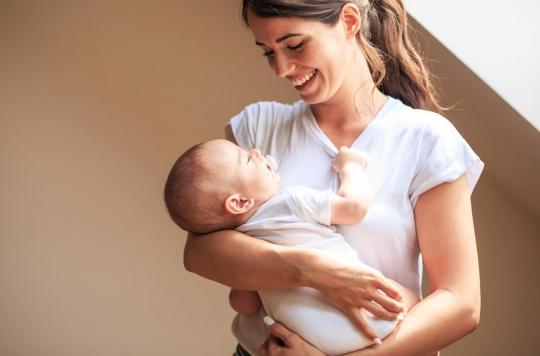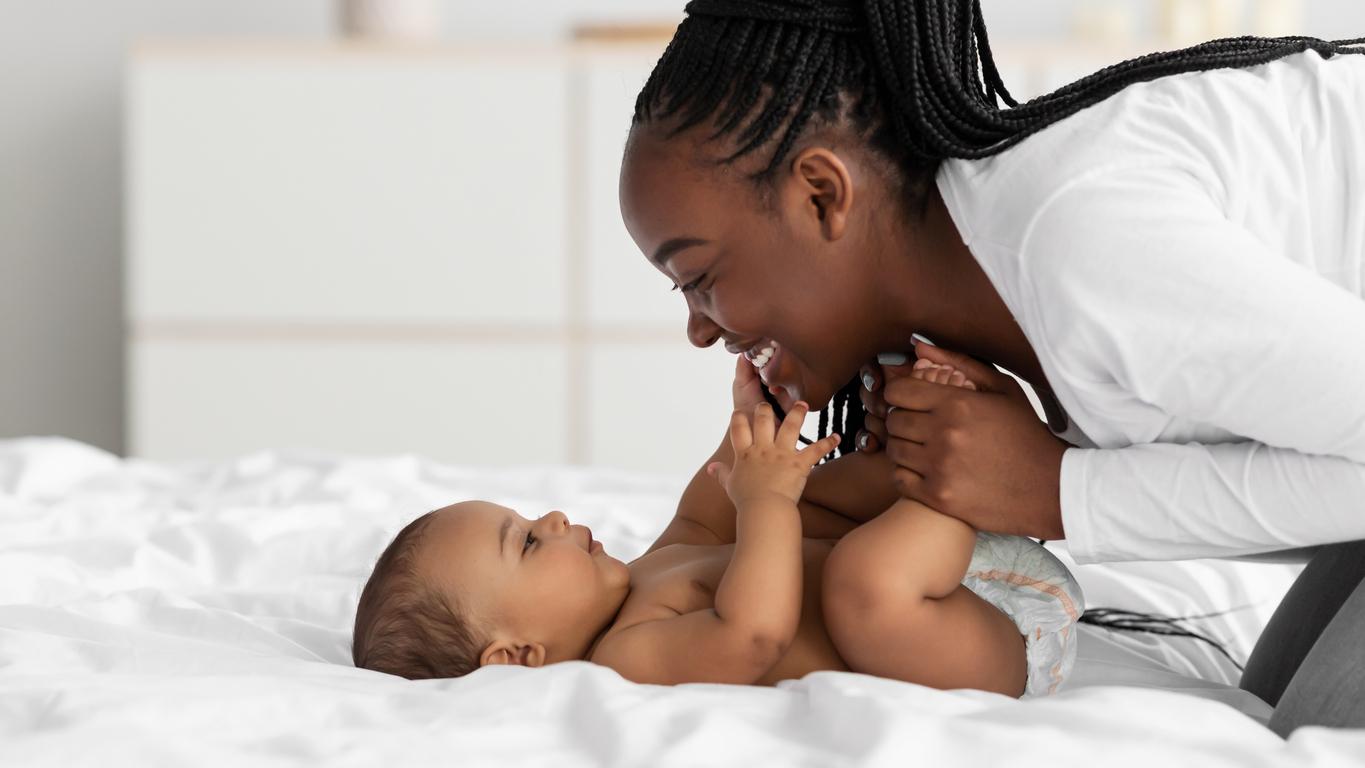Babies with an anxious or depressed mother would show higher stress than the norm. This is revealed by a study presented by an Austro-German team during the annual congress of the European College of Neuropsychopharmacy.

- According to an experiment on 50 mothers-babies, children whose mother is depressed or anxious over-react to stress.
- This difficulty in managing negative emotions can weaken the mental health of the child in his adult life.
A mother’s mental health has an impact on her baby’s stress. This is shown by the result of a study unveiled on September 13 at the annual congress of the European College of Neuropsychopharmacy. According to the researchers, from the universities of Heidelberg (Germany), Ludwigs-Maximilians of Munich (Germany), Vienna (Austria) and Ulm (Germany), babies of mothers with anxiety or depression, have a significantly increased heart rate compared to those of healthy mothers in a standard stress test. Scientists suspect that this sign of increased stress in toddlers could lead to emotional stress during child development.
“This is a preliminary finding, so we need to repeat it with a larger sample to make sure the results are consistent.warns Fabio Blanco-Dormond, a researcher at the University of Heidelberg. This is our next step.“Preliminary results that do not surprise professionals like Professor Veerle Bergink, director of the women’s mental health program at the Icahn School of Medicine (New York, USA). “This work means that it is important to diagnose and treat depressive and anxiety disorders in new mothers, as it has an immediate impact on the baby’s stress systemshe assures. Previous studies have shown not only short-term side effects, but also long-term postpartum mood disorders in children. Most postpartum mood disorders begin during or even before pregnancy, so early diagnosis is important.”
8 more beats per minute
The research teams confronted 50 3-month-old babies with the “still face paradigm”. This experiment consists of observing a toddler with his mother during a play phase, then when his mother interrupts all interaction with her child while remaining in her field of vision for 2 minutes. During this phase when the mother does not react with her baby, newborns show strong negative emotion but also a reduction in social engagement and avoidance behaviors.
Among their cohort of 50 mothers/babies, 20 women suffered from depression or anxiety disorders at the time of birth. During this still face paradigm test, the researchers measured the duo’s heart rates. “We found that if a mother was anxious or depressed, her baby had a more sensitive physiological response to stress during the test than babies of healthy mothers.explains Fabio Blanco-Dormond. This was a statistically significant increase of an average of 8 beats per minute during the non-interaction phase.”
Emotional difficulties as the child grows
However, these babies were also classified by their mothers as having a more difficult temperament than healthy babies. “To our knowledge, this is one of the first times this physical effect has been observed in 3-month-old infants.he assures. This can fuel other physiological stress systems leading to psychological problems.”
The interaction of mother and child, especially in the first months of life, plays a huge role in healthy development, according to the authors of the experiment. Some mothers, especially those with mood disorders such as depression, anxiety, or postpartum depression, have difficulty regulating negative infant mood, which can produce feelings of insecurity in the infant. the children. Gold lMood disorders like irritability, mood swings, or mild depression occur in 10-20% of women during pregnancy and the postpartum period.

.
















